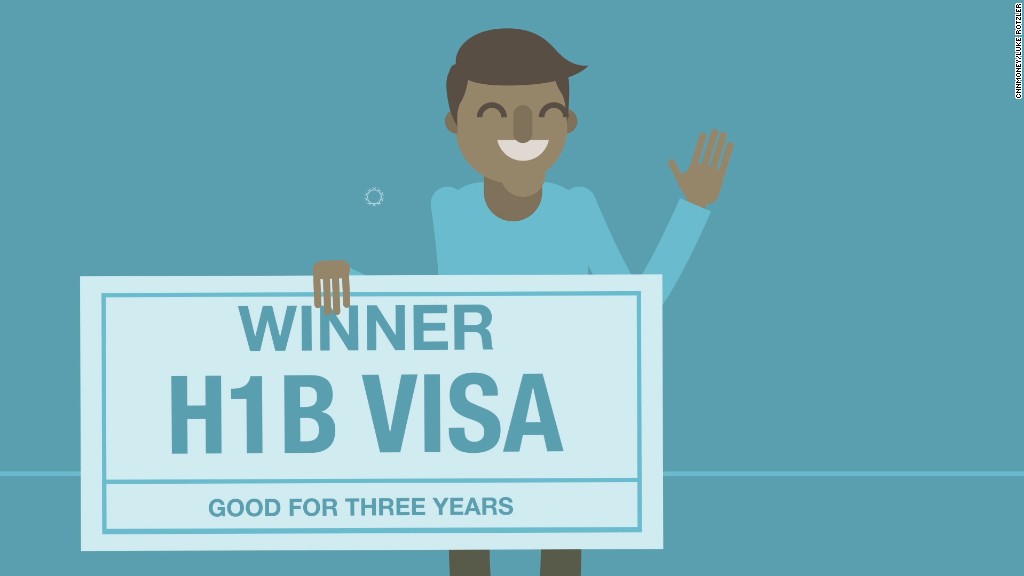
Fewer people want to come to America to work.
On Monday, U.S. Citizenship and Immigration Services announced that the number of H-1B applications fell below 200,000 this year for the first time since 2014.
Just 85,000 H-1B visas (20,000 of which are reserved for master's degree holders) are granted annually, but the past few years have seen swelling demand.
Applications for the visa opened on April 3, and it was the fifth consecutive year that the cap was met within five days.
During that period, 199,000 applications were received. In 2016, USCIS received 236,000 applications -- and the number had been climbing since at least 2013.
The H-1B is the most common visa for high-skilled foreign workers, but it's also become the subject of much scrutiny. While H-1B visas are used to fill the U.S. skills gap, critics, including the Trump administration, have voiced concerns about abuse of the program.
Related: H-1B visa applications hit cap in 4 days
In some cases, outsourcing firms flood the system with applicants, obtaining visas for foreign workers and then contracting them out to tech companies. American jobs are sometimes replaced in the process, critics say.
The start of H-1B season was met with pointed reminders from the government that it is paying close attention to the visa. USCIS announced that it would take a "more targeted approach" in visiting the workplaces of H-1B petitioners. And the Justice Department issued a press release "cautioning" employers petitioning for H-1B visas to not discriminate against American workers. These are moves designed to cripple outsourcing firms.
"In an atmosphere of uncertainty, I suppose it is not surprising that fewer petitions were filed this year," said Betsy Lawrence, the director of government relations for the American Immigration Lawyers Association.
"Some IT firms in India announced they were reducing the number of lower-experienced workers they were filing petitions for, meaning more of those jobs will stay in India rather than being relocated to the U.S."
Lawrence said it will be difficult to know what contributed to lower numbers until there's more data.
"Many employers have been unsuccessful in petitioning in past years so they might have been less willing to go to the trouble and expense of preparing petitions," she added.
Related: India freaks out over U.S. plans to change high-skilled visas
This year, the expedited processing option was put on hold. For an additional $1,225 fee, premium processing had guaranteed that an H-1B petition was reviewed within 15 days (if selected in the lottery).
Non-premium visa petitions can take as much as eight months before they're approved, immigration lawyers say. USCIS hopes to reduce overall processing times with the temporary freeze.

